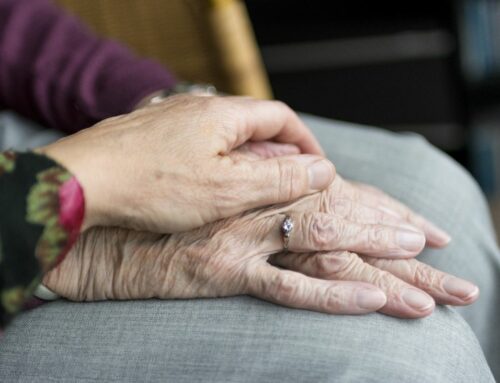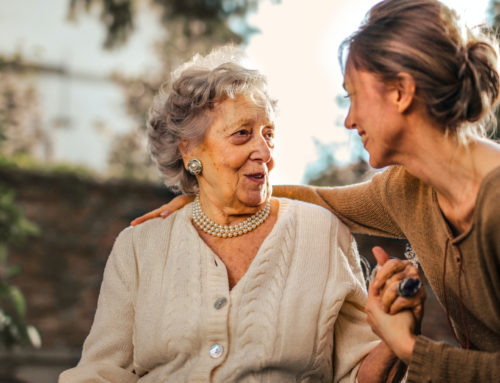Why do elderly parents turn on the child that is trying so hard to take care of them?
Families Take the Brunt of Elder Rage
It’s not really news that people tend to be their worst with the people they love. Generally, this is thought to be the case because people feel safe enough with family to just “let it all hang out.” Their anger at their circumstances, which may or may not have to do with these family members, is the real cause. Other times, the behavior is because the person has an abusive personality with deeper problems lurking.
Whatever the reason, it’s not good. We owe the people we love our best selves. Not our “dressed for company” selves, but our compassionate, honest selves. However, most humans are very imperfect creatures. They will take out their frustrations on people they feel won’t desert them.
Why do elderly parents turn on the child that is trying so hard to take care of them? This question came directly from the AgingCare.com support groups and it got many responses from people struggling with the same issue.
Why Do Elders Turn on the Caregiver?
My take on this is, unless the elders are people with personality disorder – which is a mental illness – they “turn on” the one adult child who is showing the most love by doing most of the care because they feel safe enough to do so. They don’t consciously abuse this son or daughter, but they are frustrated and need to vent this frustration about getting old, having chronic pain, losing friends, having memory issues, being incontinent – all of the undignified things that can happen to us as we age. On a gut level, they trust that this caring person won’t leave them.
The first step in handling abuse from an elderly parent is understand that the elder feels frustrated – like their independence is slipping away and death is right around the corner. Why wouldn’t they feel frustrated? They suffer so much loss and feel every bit of it deeply. They see their own mortality written on the wall with only the date of death left blank. They feel humiliated and betrayed by their bodies. Does this make it right to lash out at the one person who is breaking her neck, and perhaps her marriage and bank account, to care for them? Absolutely not.
Don’t Take Insults Personally
I think it helps if the caregiver can do her best to not take personally every insult. It also helps to be able to detach with love. My experiences with that kind of treatment don’t stand up to many of the horror stories I read on the forum, but I was subjected to some pretty nasty treatment by my mother a few times.
She was a wonderful, loving person, at heart. But her escalating physical frailty and frustrating memory issues, coupled with other dementia problems such a losing the ability to make good decisions, would cause her to lash out at me.
There were times when I was nearly in tears by the time I left her after my daily visit to the nursing home. I’d had several family members in this home and knew the staff well. They knew me and they knew my mom. One day, when Mom was really nasty to me, the nurse, who couldn’t help overhearing, told me to just skip a visiting day. I couldn’t imagine carrying out her advice, so I ignored it. Things smoothed over, but eventually the same scene happened again. The nurse said once more, with emphasis, “Carol, just skip a day.” This was a Sunday.
Sometimes You Have to Walk Away
That Monday morning I found I just could not make myself go to the nursing home for my daily visit. I didn’t do this to be stubborn or to “show her.” I was just hurt and exhausted. I knew Mom was well cared for by the staff. I gave myself a deserved day off. I didn’t even call her on the phone.
When I went to visit on Tuesday, Mom was sweet as pie. I couldn’t believe the difference. The nurse was right. I needed to stand up for myself. When my mom got verbally abusive, even though I understood that it was frustration with her situation that caused this behavior, I learned that I still needed to take care of myself. I (sort of) learned a tough lesson there. Even people with dementia can often sense when they have crossed the line. If the caregiver shows that she won’t be treated in an abusive manner, the elder will often behave – at least for awhile.
This, of course, is harder if the parent and caregiver live together. However, if you are wounded enough by mistreatment, you can say that you are hiring an in-home caregiver to come in, since your company seems to not be agreeable to them. Then do it.
Research home care agencies ahead of time. Then when a day with your parents gets so bad that you need to take a stand, reach for the phone and say that you are calling the Whatever Agency to arrange for a substitute caregiver. Tell them that you are no longer taking abuse, and when they are in such a mood, you have relief arranged. Follow through, unless you see immediate results.
Find Backup and Take a Break
You never know. Maybe finding a little respite for yourself by getting help will allow your parents to gain a new appreciation for all you do, while still letting them see a new face. And you will get a breather. Maybe getting a little help would be good for everyone. Whatever you decide, you don’t have to take abuse. If they become abusive, you can calmly say you won’t be treated like that and walk away. If the elders can’t be left alone, then you need to send for reinforcements. But most likely, when you stand up for yourself, acknowledging their pain and frustration, but saying that while those are things you can’t fix, you are doing your best, and if that isn’t good enough they will have to find someone else.
Be prepared, as bluffing won’t work. Be kind, calm and stress your love. But be strong in your resolve. The philosophy I lived by – “please everyone no matter what it costs to me” – taught me some things I hope I will never forget. I have feelings and I count. My unending patience is not always a virtue. And taking a stand early on can help a great deal throughout the whole caregiving journey.






